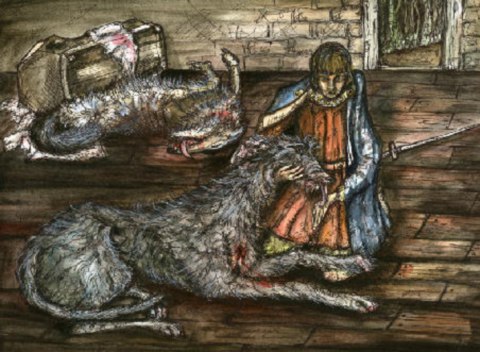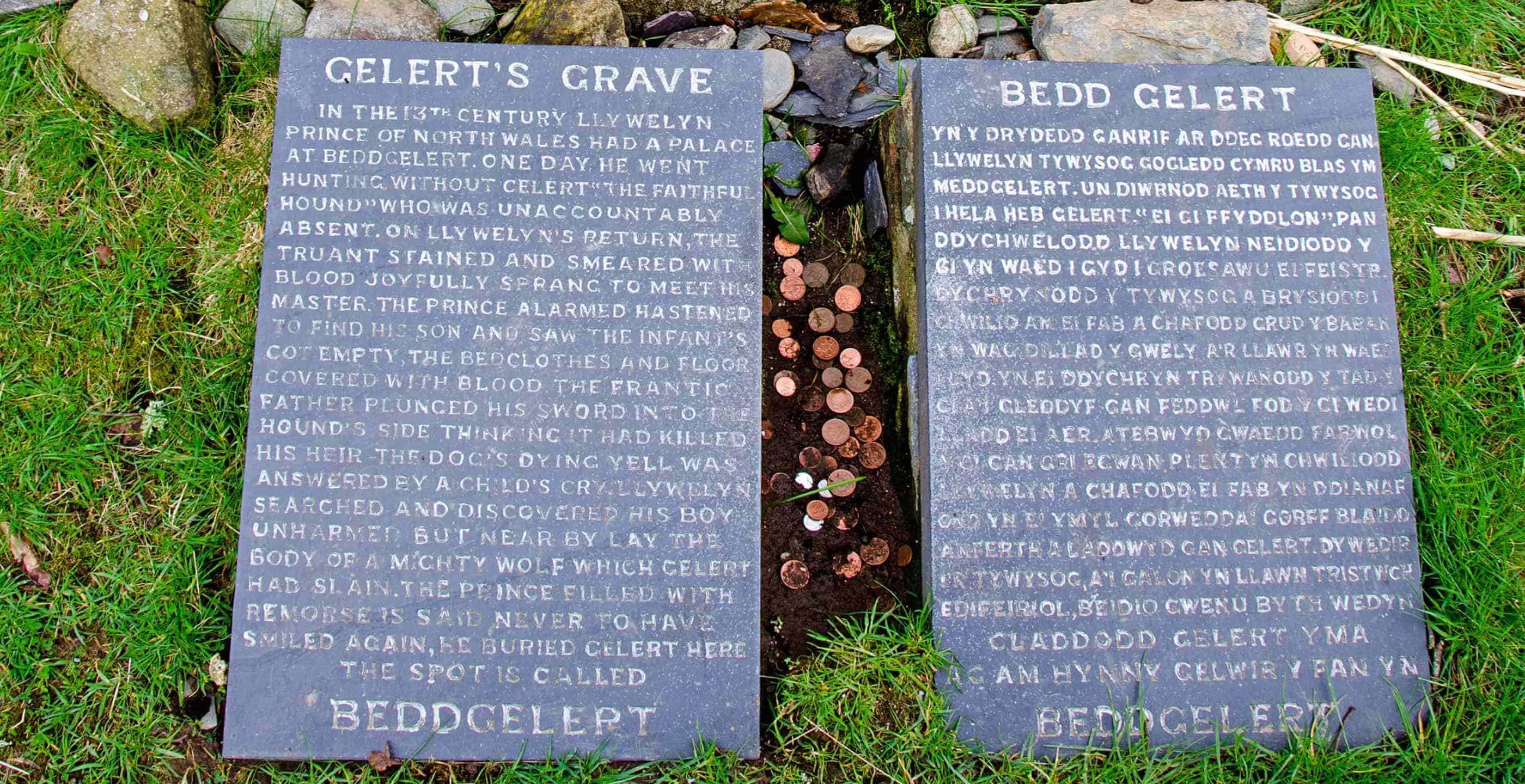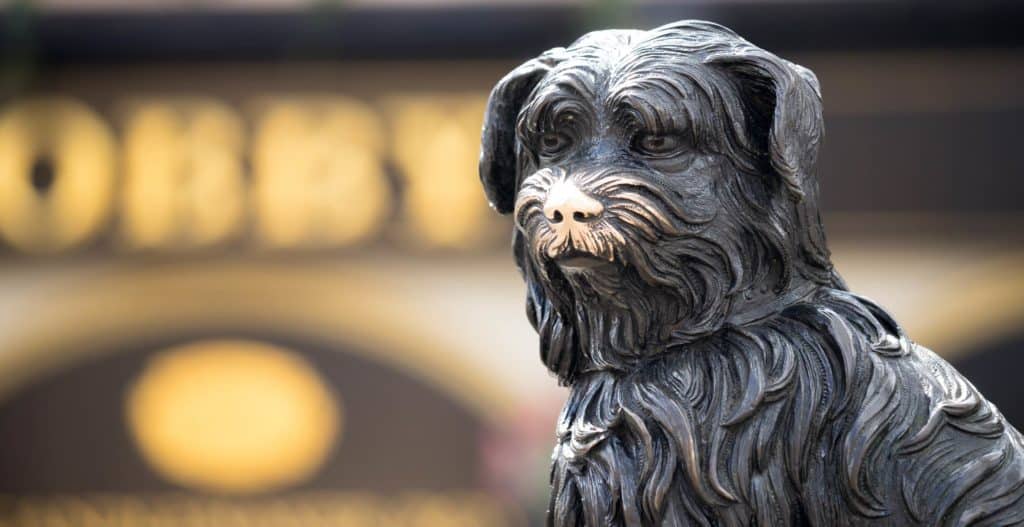One of the best known, and loved, folk-tales in Wales is the story of a faithful hound.
The story goes that in the thirteenth-century, Prince Llywelyn the Great had a palace at Beddgelert in Caernarvonshire, and as the Prince was a keen hunter, he spent much of his time in the surrounding countryside. He had many hunting dogs, but one day when he summoned them as usual with his horn, his favourite dog Gelert didn’t appear, so regretfully Llywelyn had to go hunting without him.
When Llywelyn returned from the hunt, he was greeted by Gelert who came bounding towards him …his jaws dripping with blood.
The Prince was appalled, and a horrible thought came into his mind …was the blood on the dog’s muzzle that of his one-year old son. His worst fears were realised when he saw in the child’s nursery, an upturned cradle, and walls spattered with blood! He searched for the child but there was no sign of him. Llywelyn was convinced that his favourite hound had killed his son.
Mad with grief he took his sword and plunged it into Gelert’s heart.
As the dog howled in his death agony, Llywelyn heard a child’s cry coming from underneath the upturned cradle. It was his son, unharmed!
Beside the child was an enormous wolf, dead, killed by the brave Gelert.

Llywelyn was struck with remorse and carried the body of his faithful dog outside the castle walls, and buried him where everyone could see the grave of this brave animal, and hear the story of his valiant fight with the wolf.
To this day, a cairn of stones marks the place, and the name Beddgelert means in Welsh ‘The grave of Gelert’. Every year thousands of people visit the grave of this brave dog; slight problem however, is that the cairn of stones is actually less than 200 years old!
Nevertheless this story has great appeal. History and myth appear to have become a little confused when in 1793, a man called David Pritchard came to live in Beddgelert. He was the landlord of the Royal Goat Inn and knew the story of the brave dog and adapted it to fit the village, and so benefit his trade at the inn.
He apparently invented the name Gelert, and introduced the name Llywelyn into the story because of the Prince’s connection with the nearby Abbey, and it was with the help of the parish clerk that Pritchard, not Llywelyn, raised the cairn!
Whether the story is based on legend, myth or history it is still an entertaining one. Similar legends can also be found throughout Europe.






